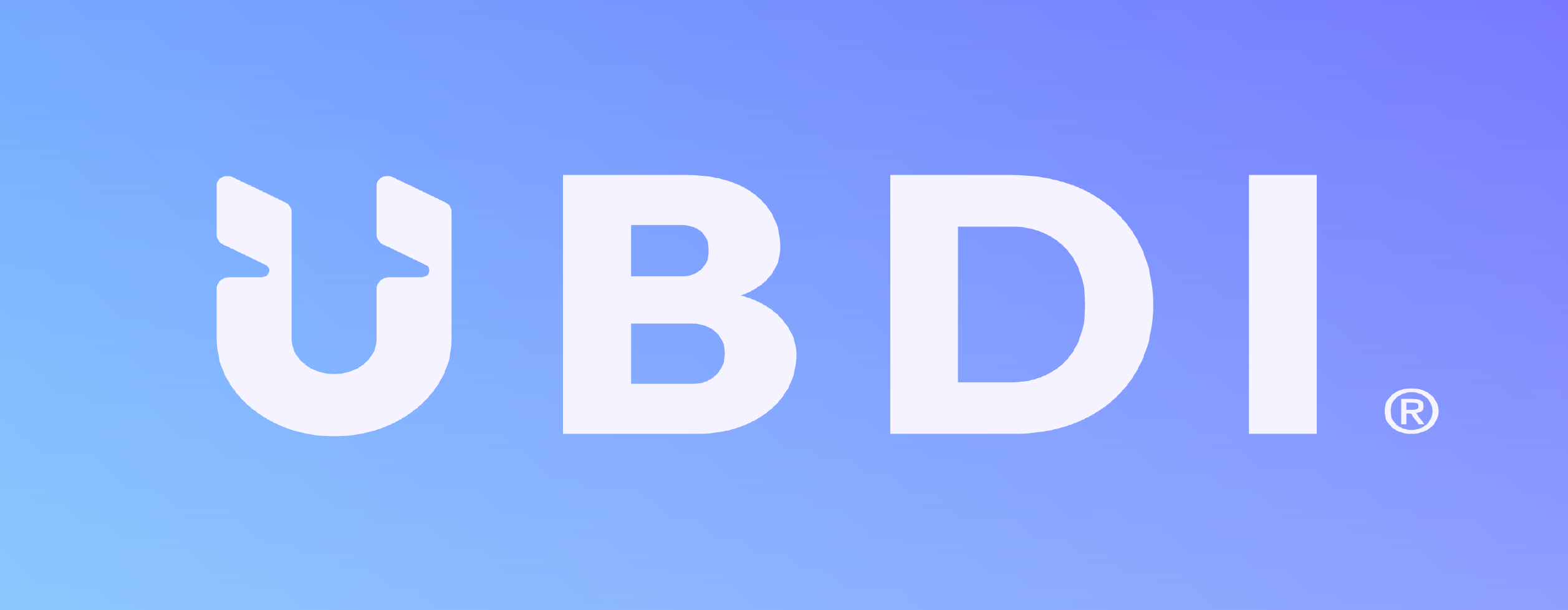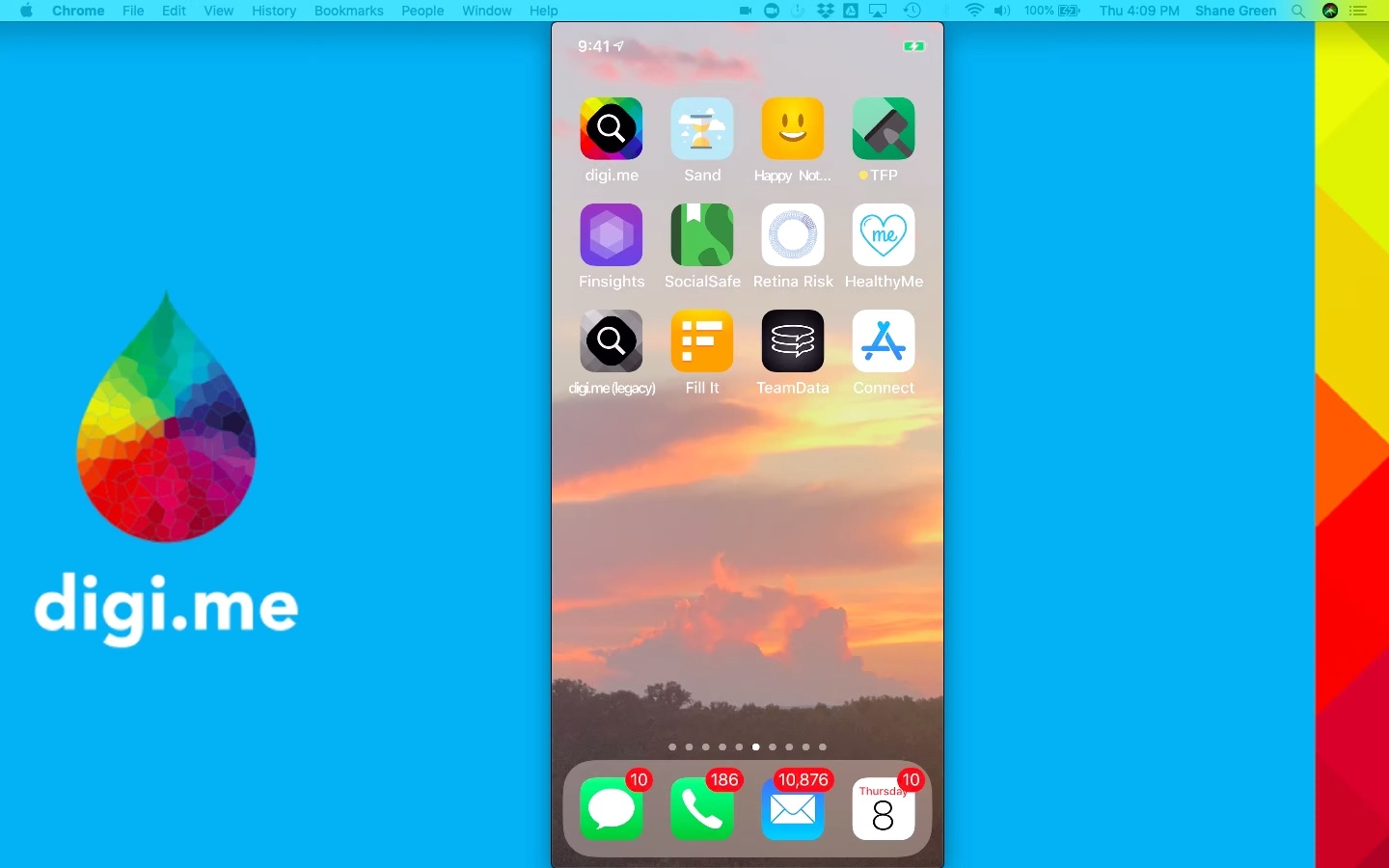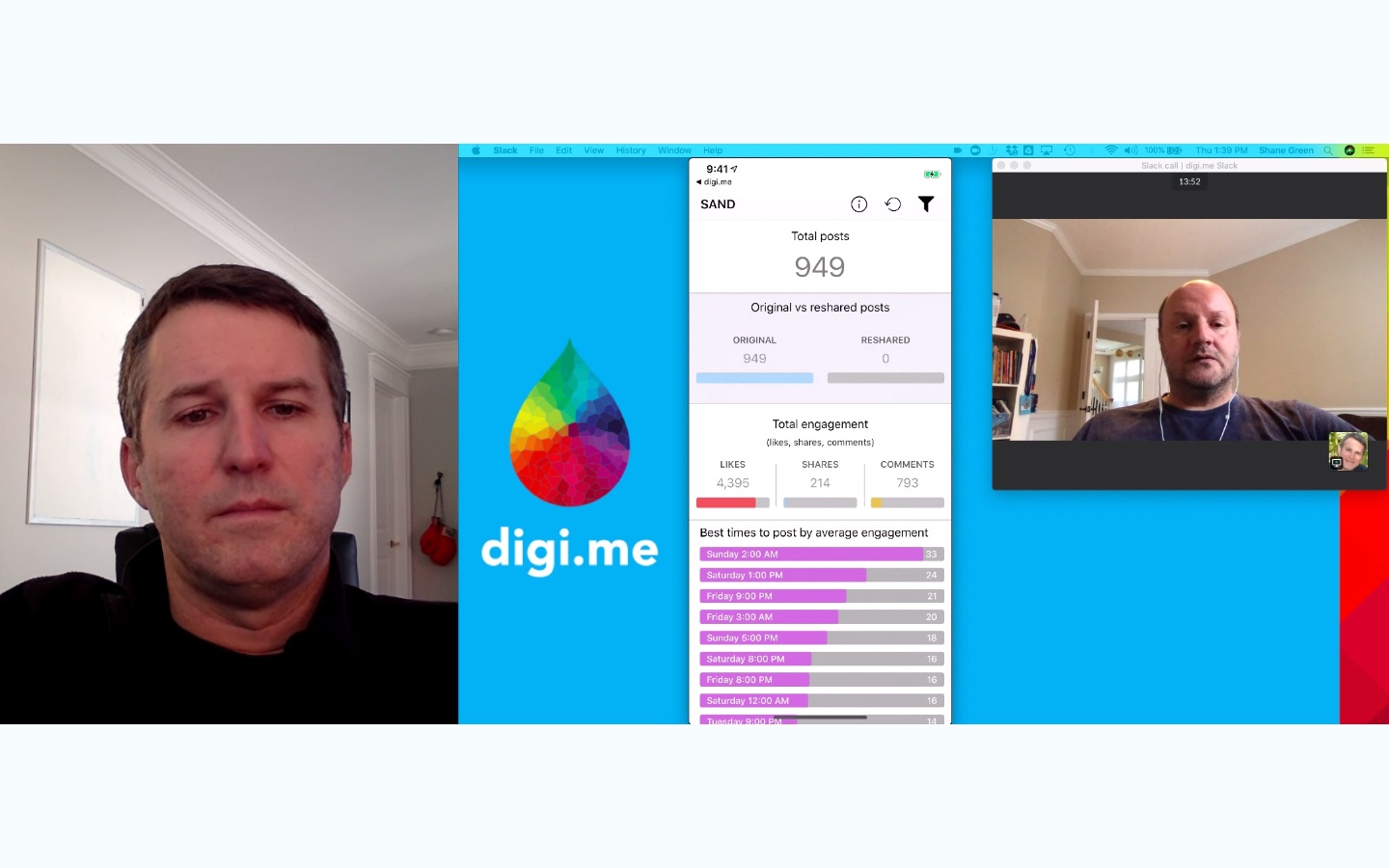This post was co-written by Shane Green (@shanegreen) and Tarik Kurspahic (@tariktech) and originally appeared on Medium.

Anyone familiar with digi.me and our mission knows we are focused on empowering people with their data. We are building a data-driven future aligned with the needs and interests of people — where individuals can securely and privately aggregate, analyze and share massive quantities of data from across their life.
This user-centric approach to data also holds promise for developers and companies who want to collaborate with their users in a win-win data partnership. We think social data is a great place to start.
We have launched a new API and SDK for accessing normalized, integrated user data from five of the top social networks: Facebook, Instagram, Twitter, Pinterest and Flickr.
The idea is simple:
— A single integration to access tons more social data from your users wherever they may be
— The ability to establish your own terms of service with your users by asking them for their data and breaking free of the terms of service and restrictions from social networks
— Wicked new opportunities to innovate
— Protection from regulators by requesting permission from your users and embracing transparency
— Democratizing data by promoting the mission of empowering people
A single integration for tons more social data
Digi.me’s consumer app allows users to import their social data from five of the leading social networks. Recent court cases in Europe have affirmed the right of users to download and sync complete copies of their data, including their own posts, photos, videos, likes and comments, as well as many of the same types of data from friends where they have been tagged.
Without ever seeing, touching or holding a user’s data, digi.me makes it easy for users to connect to their various accounts and get a complete library of their social data. Our ontology, data normalization and standardization techniques ensure the data is easily accessible and reusable via a single API and SDK.
Your users will need the digi.me app to connect to their accounts and fetch their data. From there, your app needs to ask the user for consent to access it under terms you agree to with your users. Once the user approves your request, you get access to the requested data under terms you set with the user.
Break free of onerous terms of service
Again, due to our unique architecture and business approach, the users themselves are not subject to the normal terms of service of social networks that apply to businesses. Once users download their own copy of all of their social data (which they hold — not digi.me), they are free to share it however they choose and without restrictions.
So you can enjoy the peace of mind knowing that you have the ability to collaborate with your users and get permission to access the data that drives your business.
More data + new rules = more opportunity to innovate
We are constantly amazed at the things people build when they have access to data and the freedom to innovate. Digi.me provides a permission-based way for you to seek access to ever-expanding datasets far beyond social, including financial, wearables, health and entertainment directly from your users.
Never before has such a combination of up-to-date datasets been available to analyze and leverage.
Speaking of innovation, we decided to put the API through its first real test by putting on a hackathon at Reykjavik University in Iceland and the results were nothing short of awesome. Check out this page to see what smart people like you are already building on digi.me.
Regulators will love you
Instead of worrying about the uncertain regulatory environment, lean in to a user-centric model, a favorite of regulators in both Europe and the United States.
Digi.me has been recognized by regulators as the ideal approach for a fair, ethical and sustainable data-driven future. Everyone is a winner — consumers, companies, developers. Plus, in Europe, digi.me is entirely compliant with the new General Data Protection Rules (GDPR).
Your customers will love you
Your users won’t forget that you introduced them to this revolutionary new way of being in control of their digital lives. Help your users break free of data monopolies. Study after study shows people are deeply uncomfortable with the current model.
It’s not just great marketing, be among the first to do the right thing by your users.
We are already working with people to change the world and create innovative solutions, but we are just getting started. We’d love to hear what you think!









 It’s been a while since I’ve had time to write – at least thoughtfully. We have been heads down since the beginning of the year finishing our user-centric data platform, data vault and permission-based data sharing service, and are excited to start moving into our next closed beta release shortly.
It’s been a while since I’ve had time to write – at least thoughtfully. We have been heads down since the beginning of the year finishing our user-centric data platform, data vault and permission-based data sharing service, and are excited to start moving into our next closed beta release shortly.